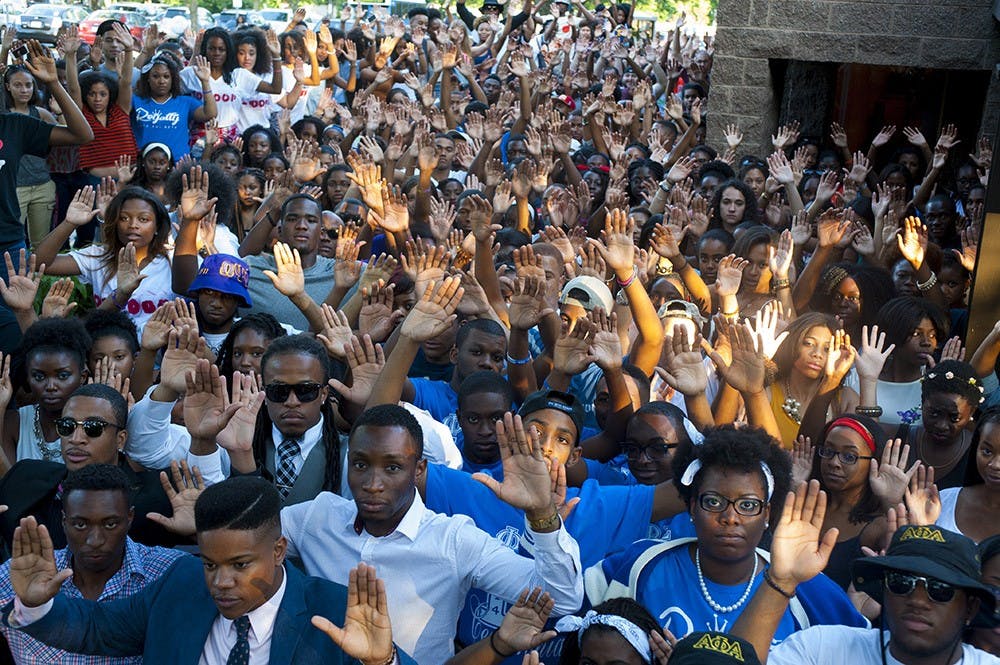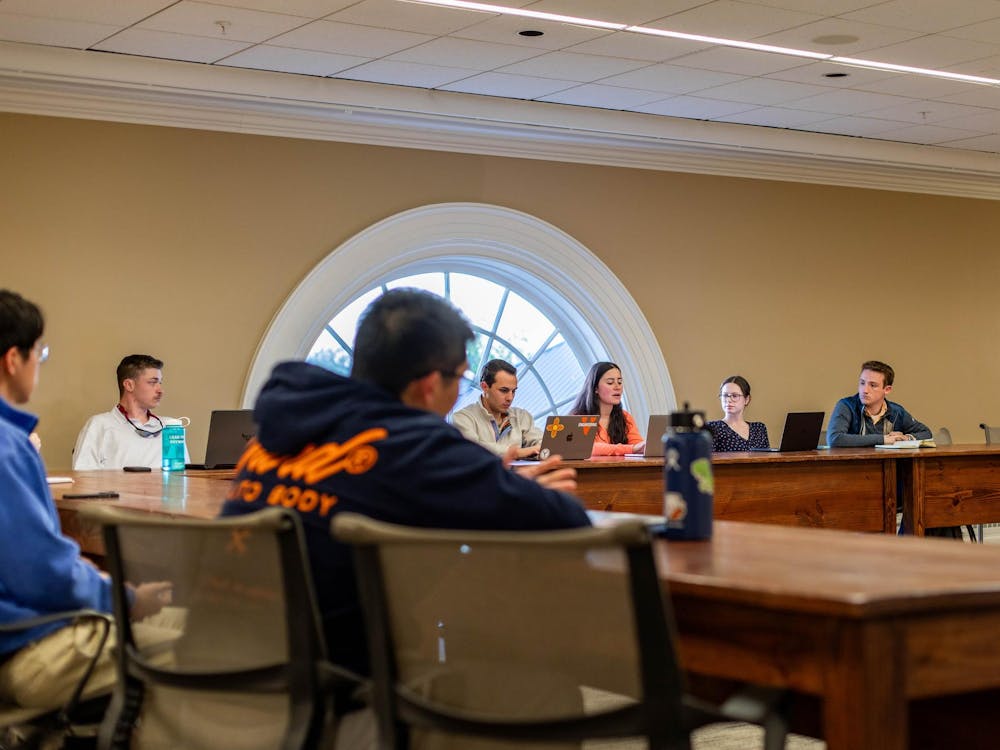A grand jury in St. Louis decided Nov. 24 not to indict former Ferguson police officer Darren Wilson with criminal charges for the fatal shooting of Michael Brown, an 18-year-old African American. The decision sparked an outcry against racial discrimination and police brutality throughout the United States, including at the University and in the Charlottesville community.
The Black Student Alliance will host a candlelight vigil Monday night to commemorate Brown. The vigil will take place at the bus stop located near Monroe Hall, or the Black Bus Stop, or “the BB.”
The vigil will also honor the lives of late University employee Emanuel Brown and Tamir Rice, a 12-year-old from Cleveland who was fatally shot by a police officer Saturday, Nov. 22.
Fourth-year College student Joy Omenyi, president of the Black Student Alliance, said the vigil will serve as a place for students to come together and honor the recent deaths in the African American community.
“This is a time to be together and commemorate everything that’s going on while tensions are so high,” Omenyi said.
A group of students will also host a “Die-In Demonstration” on the steps of Minor Hall Monday afternoon, starting at 1:25 p.m.
Third-year Engineering student Kiana Warren is planning the Die-In, at which volunteers will lie on the ground in increments of four and a half minutes to represent the four and a half hours Michael Brown was on the ground before police removed his body.
Warren said the event is intended to attach an image to African American citizens who have died as a result of police brutality.
“Every 28 hours a black or brown body falls victim to police brutality," Warren said. "Those numbers can seem far-fetched if they aren’t represented right in front of you, but these are the bodies here on the ground, they aren’t just a number. When we hear the names and see the stories, often times because of the way media is today, we become emotionally detached from who these people are. By actually doing this demonstration, it places a physical presence that cannot be ignored.”
Warren said the Die-In will intentionally take place at a location which generally attracts significant traffic and at a time that many students are on Grounds.
“We want this image to stop your day-to-day function,” Warren said. “Often when we hear about instances of police brutality life seems to go on as usual, but this will serve as a stark contrast to a lot of people’s normal worlds.”
Third-year College student Vendarryl Jenkins, president of the University’s chapter of the National Association for the Advancement of Colored People, said the grand jury decision is an opportunity to further explore the issue. Jenkins said the NAACP will likely facilitate discussions regarding the the decision not to indict Wilson to create a better understanding of the decision and determine future action.
“We need to look over all the evidence to see if there needs to be any further action,” Jenkins said. “I don’t see anything that we can necessarily do other than dialogue and understand the case for ourselves, which is certainly an important step.”
Jenkins said the recent riots and lootings in Ferguson have fortified the stereotypes of violence and criminal action often associated with African Americans.
“It’s definitely something that we’ve been trying to get rid of," he said. "It attaches an unwanted stigma to people. In this case, African Americans can be painted as criminal and violent and things of that nature. [In response to the riots] people are starting to justify those stereotypes, which is extremely unfortunate.”
Sen. Tim Kaine, D-Va., released a statement addressing Virginia residents in response to the decision. Kaine asked law enforcement officials to respect citizens’ right to protest the grand jury decision. Kaine said encouraged protesters to demonstrate peacefully.
"Going forward, it’s critically important that we do more as a nation to address the tense relationship between law enforcement and local communities that was prevalent well before this tragedy, particularly in communities of color," the statement read. "Our criminal justice system should never give anyone in America reason to doubt its fairness. It’s on us to work through these challenges in Virginia, Missouri and across the country."
Though various American cities such as Chicago and Los Angeles have recently staged protests, Jenkins said Charlottesville is unlikely to respond as vocally.
“I don’t [foresee] any large scale action from the Charlottesville community,” Jenkins said. “In a lot of places, there are very real racial tensions. Charlottesville is a smaller city to begin with, and while there is a history of racial tension, it does not seem to be the same sort of history as there is in the larger cities. There is a completely different community at play.”
Omenyi said the community needs to engage in discussion to create sustainable change in the American justice system. Omenyi said once protests subside, there will likely be more proactive initiatives for change.
“Of course this can be regarded as a black issue, but the amount of support that we have is ridiculously diverse," she said. "This is more of an American problem than a black problem. Now that protests are over, I think people are ready to sit down and talk about changes as we move forward.”






